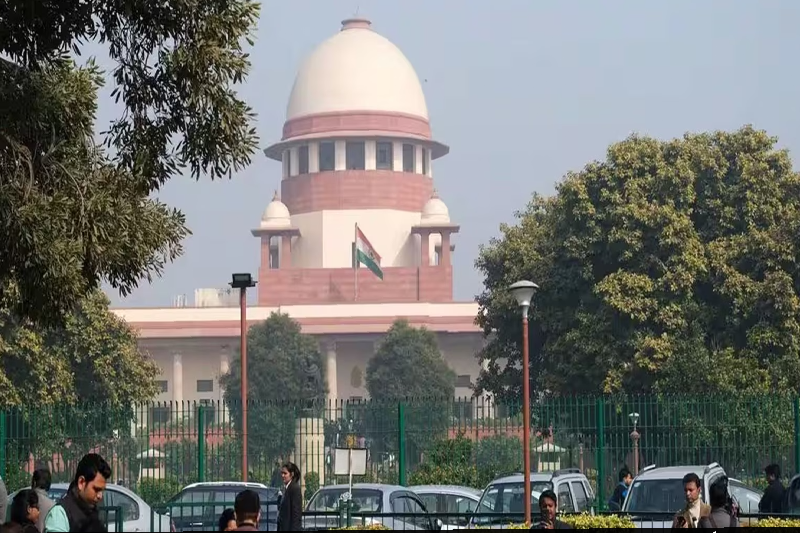
Supreme Court Refers PIL on Including Minority Schools Under RTE Act to CJI
The Supreme Court of India has referred a public interest litigation (PIL) seeking to bring minority educational institutions under the ambit of the Right of Children to Free and Compulsory Education (RTE) Act to the Chief Justice of India (CJI) for appropriate orders. The development follows ongoing debates regarding the applicability of RTE provisions to schools that provide both religious and secular education. The PIL, filed by Nitin Upadhyay through advocate Ashwani Kumar Dubey, also challenges sections 1(4) and 1(5) of the Act, claiming they are arbitrary and inconsistent with several constitutional provisions, including Article 14, which guarantees equality before the law.
Background: RTE and Minority Institutions
The RTE Act, enacted under Article 21A of the Constitution, mandates that the State provide free and compulsory education to all children aged six to fourteen years. It also ensures children have access to essential educational facilities such as trained teachers, textbooks, uniforms, infrastructure, and mid-day meals. However, minority educational institutions, particularly those protected under Article 30, have historically been exempted from certain provisions of the RTE Act. Article 30 allows minorities to establish and administer educational institutions of their choice, a right intended to preserve cultural and religious identities.
The Supreme Court, on September 1, 2025, had questioned the correctness of its 2014 Pramati Educational and Cultural Trust judgment, which exempted minority schools, whether aided or unaided, from the RTE Act. The apex court observed that such exemptions could compromise the foundation of universal elementary education, potentially fragmenting the common schooling vision and undermining inclusivity and universality envisaged by Article 21A.
Key Points of the PIL
The PIL filed by Nitin Upadhyay seeks a writ order or direction to ensure that both the RTE Act and the Teacher Eligibility Test (TET) are applied uniformly across all schools, including minority institutions. Currently, the TET—a measure introduced to maintain teaching quality—is mandatory only for non-minority schools, leaving minority schools outside its purview.
The petition argues that this distinction creates inequality and arbitrary discrimination, undermining the objective of providing quality education to all children. By excluding minority institutions, the law inadvertently allows some schools to operate without the same quality and accountability standards mandated for others, creating disparities in educational access and outcomes.
Supreme Court Observations
The bench of Justices Dipankar Datta and Augustine George Masih noted that a similar issue regarding the RTE Act is currently pending adjudication before the apex court. The court emphasized the need to evaluate whether its earlier decision in the Pramati case may have unintentionally weakened the universal education framework.
The court framed four central questions for consideration:
- Does the Pramati judgment, exempting minority schools from the entirety of the RTE Act, require reconsideration?
- Should minority institutions be covered under the RTE Act to ensure uniform standards of education?
- How should provisions like the Teacher Eligibility Test be applied to maintain teaching quality across all schools?
- What measures are necessary to reconcile Article 30 rights of minorities with the objectives of Article 21A, ensuring inclusivity and equality in elementary education?
The Supreme Court urged the CJI to consider whether these issues warrant examination by a larger bench, reflecting the complexity and constitutional significance of the matter.
Constitutional and Legal Implications
The case highlights the delicate balance between the rights of minority institutions and the State’s responsibility to ensure universal access to quality education. While Article 30 grants minorities autonomy in managing educational institutions, Article 21A establishes a constitutional right to education for every child. Exempting minority schools from RTE provisions could lead to fragmented schooling standards, unequal access to trained teachers, and inconsistent infrastructure and learning resources.
Legal experts note that revisiting the Pramati judgment could have far-reaching implications for educational inclusivity, ensuring that all children, regardless of the type of school they attend, receive minimum quality standards. The case may also influence how Teacher Eligibility Tests are implemented nationwide, reinforcing teacher competency across all educational institutions.
Potential Impact on Minority Institutions
If the Supreme Court eventually directs that minority institutions come under the RTE Act, schools would be required to:
- Comply with uniform teaching standards through TET certification.
- Provide essential facilities, including trained teachers, textbooks, uniforms, and mid-day meals.
- Align with the universal education framework, balancing religious and secular instruction.
Such measures could enhance accountability and quality in minority-run schools, bridging gaps in educational access and outcomes. However, it would also require policy adjustments and administrative planning to ensure that minority rights under Article 30 are respected while upholding the principles of Article 21A.
National Significance
This PIL comes at a crucial time when India is focusing on inclusive education and bridging gaps across various categories of students. With the Supreme Court considering the matter for a larger bench, the outcome could reshape the way minority educational institutions operate, striking a balance between cultural autonomy and constitutional guarantees for all children.
Experts emphasize that a uniform application of the RTE Act would not only strengthen educational equity but also enhance social cohesion by ensuring that all children, regardless of the type of school, benefit from standardized learning environments.
Conclusion
The Supreme Court’s referral of this PIL to the CJI underscores the importance of reviewing long-standing exemptions for minority educational institutions under the RTE Act. With potential ramifications for teacher qualifications, school infrastructure, and access to education, this case could redefine how inclusivity and equality are implemented in India’s schooling system.
As India continues to strive toward universal elementary education, the dialogue between minority rights and the State’s obligation to provide free and compulsory education will remain a central issue. The decision of the CJI and the larger bench will likely set a benchmark for ensuring quality, equality, and accountability across all schools, fostering a more inclusive and equitable education system for the country’s children.


